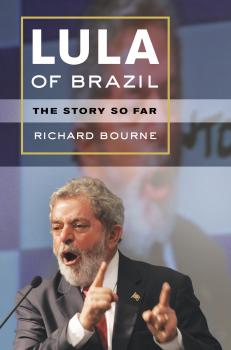ТОП просматриваемых книг сайта:
Richard Bourne
Список книг автора Richard BourneАннотация
Seek the Peace of the City provides a robust engagement with the theological foundations and practices of Christian social and political criticism. Richard Bourne identifies a theological realism found in the work of John Howard Yoder. This realism bases social and political criticism in the purposes of a nonviolent, patient, and reconciling God. Bourne develops this account and shows how it is consonant with aspects of the work of a range of contemporary theologians including Stanley Hauerwas, John Milbank, Karl Barth, and Dietrich Bonhoeffer. In developing this theological realism, the book furnishes an account of Christian criticism capable of addressing key debates in contemporary theology and political theory.
Bourne begins by arguing for the public status of theological political claims. He demonstrates that only a vigorous theological realism, grounded in the universal lordship of Christ, is capable of providing a foundation for local, particular, and ad hoc practices of critique. The book concludes by developing an account of the impact such a theological realism and practice of critique might have on contemporary political theory–with explorations of the doxological nature of social change, the changing shape of the state, governmentality and political sovereignty, and the status and role of religious communities in civil society.
Bourne begins by arguing for the public status of theological political claims. He demonstrates that only a vigorous theological realism, grounded in the universal lordship of Christ, is capable of providing a foundation for local, particular, and ad hoc practices of critique. The book concludes by developing an account of the impact such a theological realism and practice of critique might have on contemporary political theory–with explorations of the doxological nature of social change, the changing shape of the state, governmentality and political sovereignty, and the status and role of religious communities in civil society.
Информация о книге
Автор произведения Richard Bourne
Жанр Религия: прочее
Серия Theopolitical Visions
Аннотация
Luiz Inácio Lula da Silva's dramatic life story has captured the imagination of millions, and his progressive politics have brought hope and excitement to Brazil—and the world. This compelling work is the first major English-language biography of the metalworker who became president of Latin America's largest and most powerful country. In a clearly written, vividly detailed narrative, Richard Bourne describes Lula's childhood hardships in an impoverished family, his days as a revered trade unionist, and the strike movement that brought down Brazil's military dictatorship. The book chronicles Lula's campaigns for the presidency, his first term in office beginning in 2002, a major corruption scandal, and his reelection in 2006. Throughout, <I>Lula of Brazil </I>connects this charismatic leader's life to larger issues, such as the difficulty of maintaining a progressive policy in an era of globalization. Brazil's contemporary history, parallels with other developing countries and other world leaders, the conservatism of Brazilian society, and other themes provide a rich backdrop for assessing the struggles, achievements, and failures of this major figure on both the Brazilian and the world stage.


